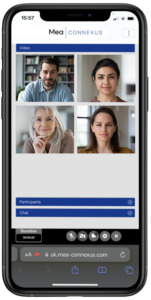From counterterrorism to insurance
Formed in 2014 by a team of UK counterterrorism policing experts, Issured works to mitigate the risks posed by an increasingly digital society.
Building on the success of its UK government projects, Issured’s five founders spotted an opportunity to support insurers with their claims processes.
The artificial intelligence challenge
While generative AI creates opportunities for businesses to work more efficiently, its ability to generate more and more convincing deepfake and shallowfake material poses a real threat to insurers.
“There’s a dichotomy in the insurance industry,” according to Jed Stone. “Insurance companies want to pay claims as quickly as possible. But in doing that, they spend less time investigating which claims may be fraudulent.”
Alongside this, Jed notes a possibly bigger issue:
It’s going to get harder and harder to detect false claims. While people are using AI to detect deepfakes, AI is also being used to generate deepfakes. We are in this cycle of technology that is always trying to catch itself.
Recognising inefficiencies within claims
Alongside generative AI’s challenges, insurers must also contend with challenges managing resources and their associated costs.
Gathering statements from policyholders and witnesses takes time. According to Jed:
“The UK population is quite transient. If, for example, an accident in London is witnessed by a Cumbrian resident, an investigator might need to travel for five hours to obtain that one statement. The costs of this include fuel, fleet operations and expenses.”
Then there’s the issue of the ‘forgetting curve’, as Jed explains:
“We know that the sooner you get to speak to someone about an incident, the better the information you’re going to get from them. Because their memories are fresh, there’s less risk of the forgetting curve, which happens when someone starts to remember a memory rather than the event itself.”
Meeting the industry’s needs
Whilst insurance and policing have distinct goals, Jed notes their common ground: “They both deal with risk, threat and protecting people’s livelihoods.”
In particular, Issured understands the investigative side of dealing with risk, as Jed explains:
Insurance claims investigations are not that different from those we’ve supported within the public sector. Typically, they are subject to the same challenges when it comes to evidence and integrity.
So that’s where we focus our efforts. When a claim is picked up as suspicious, it still requires human intervention and an investigation. That’s one piece of the puzzle we’ve tried to solve.
Enabling secure interviews

MeaConnexus is designed to support investigation efforts, with features such as the ‘silent observer’. This allows individuals or teams to observe the interview and feedback information to the interviewer in real time.
Interviews in MeaConnexus can be bookmarked easily. This allows users to jump back to critical points in the conversation. In addition, transcripts can be annotated – enabling colleagues to comment or add crucial information for the team to review.
MeaConnexus also provides users with real-time speech-to-text transcription. This can be downloaded as soon as the interview concludes.
Importantly, MeaConnexus provides users with something Jed refers to as a ‘digital evidence bag’.
He adds: “We use blockchain technology to ensure that the content of the video interview is immutable. This means you can always prove that it hasn’t been tampered with. We see this as becoming more and more critical moving forward.”
Ensuring sustainability
MeaConnexus’ capabilities were put to the test during a trial with Zurich’s claims investigation team. They liked its user-friendly features and evidence safeguarding capabilities, and were particularly impressed by how it ensures sustainability.
Prior to working with Issured, Zurich’s team conducted interviews with policyholders and claimants in person.
“In the first year of using MeaConnexus, Zurich undertook around 600 interviews. They have advised us that it helped their investigations team to achieve 70% of their sustainability target, which is great,” recalls Jed.
By reducing travel costs and making productivity savings, the company is estimated to have saved around £40,000 per year.
“… and that goes a long way to recruiting other investigators as required,” adds Jed.
Identifying future trends
Looking ahead, Jed believes that products like MeaConnexus will continue to speed up the claims process.
“And that’s a great thing,” he enthuses. “There’s always going to be a resource-intensive human element around insurance claims. Our skills and focus is on supporting and making the human investigation and assessment more efficient and effective.”
As well as exploring and implementing new capabilities into its ‘digital evidence case’, such as real-time translation, Issured is looking at ways to make further use of its blockchain technology within the insurance sector.
Tacking AI-generated fraud
Issured’s latest product, MeaFuse, is about to undergo trials by the claims team at Zurich.
The product allows insurers, investigators and even policyholders to capture and submit images, video, audio statements and more relating to claims.
“MeaFuse can prove when it was captured and what’s happened to that material throughout its life – as if it were physical evidence,” explains Jed.
Once upon a time, people might ask why that is important. A picture is a picture after all. But deepfakes and shallowfakes are becoming more convincing. This could have a massive impact on claims.
He continues: “People will be able to submit AI-generated images including damage to their vehicles and their properties. We are not trying to detect deepfakes: we are trying to stop them from happening in the first place.”


